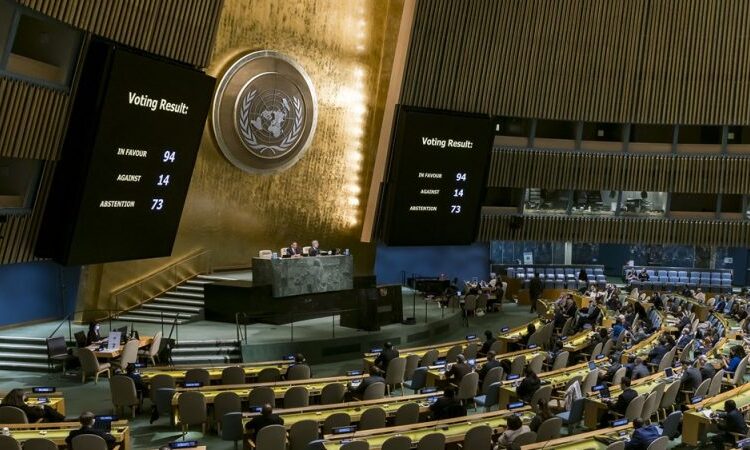
EU finance ministers are leading the pushback against the campaign for a UN tax convention to make rules to tackle corporate tax evasion and illicit financial flows.
The long-running campaign for a UN body to replace the Paris-based Organisation for Economic Co-operation and Development (OECD) as the global rule-maker on tax has gained momentum in recent years.
This week, Nigeria formally tabled a draft resolution on behalf of the Africa Group calling for the negotiation of a comprehensive UN Convention on Tax. The resolution will be debated in the coming weeks.
Last November, countries agreed by consensus at the United Nations to lay the groundwork for the creation of an intergovernmental UN Tax Process. However, persuading wealthy states to create a new body with any teeth continues to be difficult.
The EU, and others including the United States and Japan, continue to argue that a UN Tax Convention would be a needless duplication of the OECD’s work on tax transparency.
A UN tax body “would risk leading to duplicate ongoing or completed international work linked to the existing global tax framework… This would be time consuming for all jurisdictions,” said EU finance ministers.
At a meeting earlier this month, EU finance ministers recommended that the bloc support “working at the UN on a non-binding multilateral agenda.”
That stance contradicted a European Parliament resolution in June which supported a UN tax convention to tackle tax evasion and illicit financial flows following the revelations in the ‘Pandora Papers’.
The Africa Group, Group 77 and China retort that none of them are members of the OECD but are expected to apply its rules.
That argument was given some endorsement by UN Secretary-General Antonio Guterres who stated in a report published in August that there was “significant evidence that the substantive guidance produced through these processes [the OECD’s Inclusive Framework]… often is not implemented by developing countries because it is not seen by them as responding to their more immediate needs and priorities (rather, it draws resources away from such issues) and/or is not capable of being implemented by them.”
“Thus, the substantive aspect of inclusive and effective international tax cooperation does not appear to be adequately met,” Guterres concluded.
African states, who contend that, at an estimated $50 billion per year, they are among the biggest losers from illicit financial flows and tax avoidance, are trying to push reform on global tax policy as part of the wider agenda of reforming the multilateral financial framework.
On Tuesday (17 October), EU finance ministers updated their list of 16 states deemed to be “non-co-operative jurisdictions for tax purposes”, adding Antigua, Belize and the Seychelles to the tax havens blacklist and removing the British Virgin Islands, Costa Rica and the Marshall Islands.
EU countries lose over $130 billion a year to tax havens. However, civil society groups have pointed out that several EU countries are themselves guilty of harbouring tax havens. In its annual country recommendations as part of the European Semester this year, the European Commission urged Luxembourg and Malta to take measures to tackle aggressive tax planning.
[Edited by Nathalie Weatherald]







